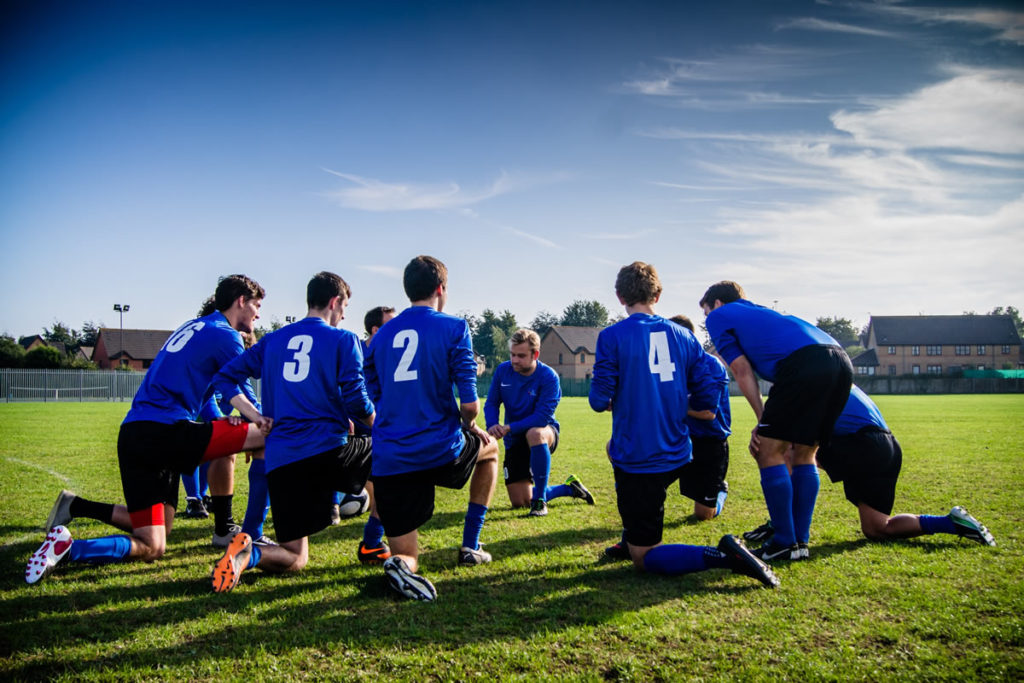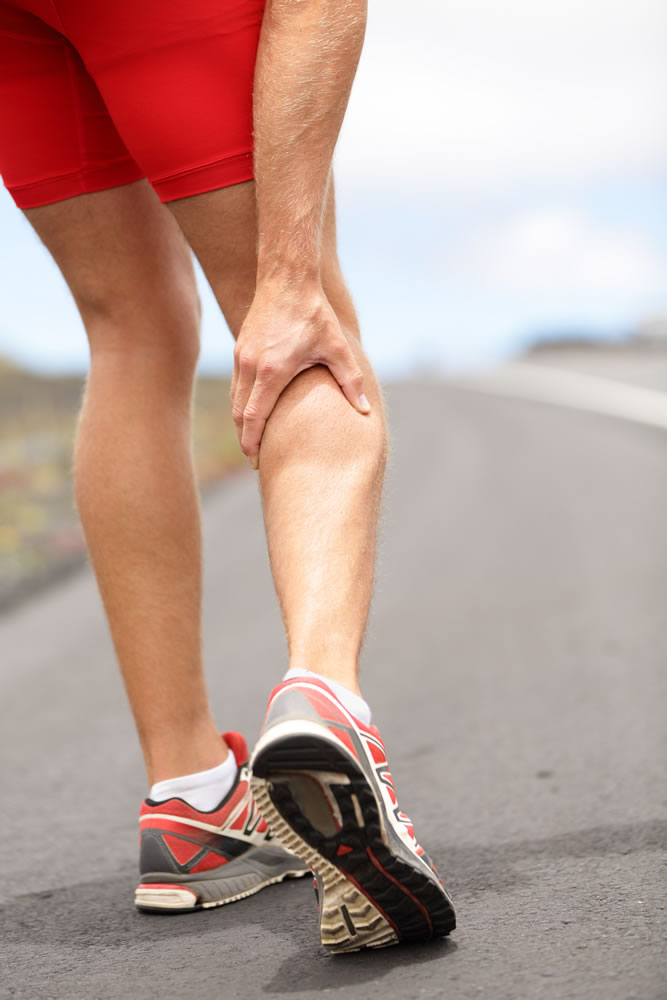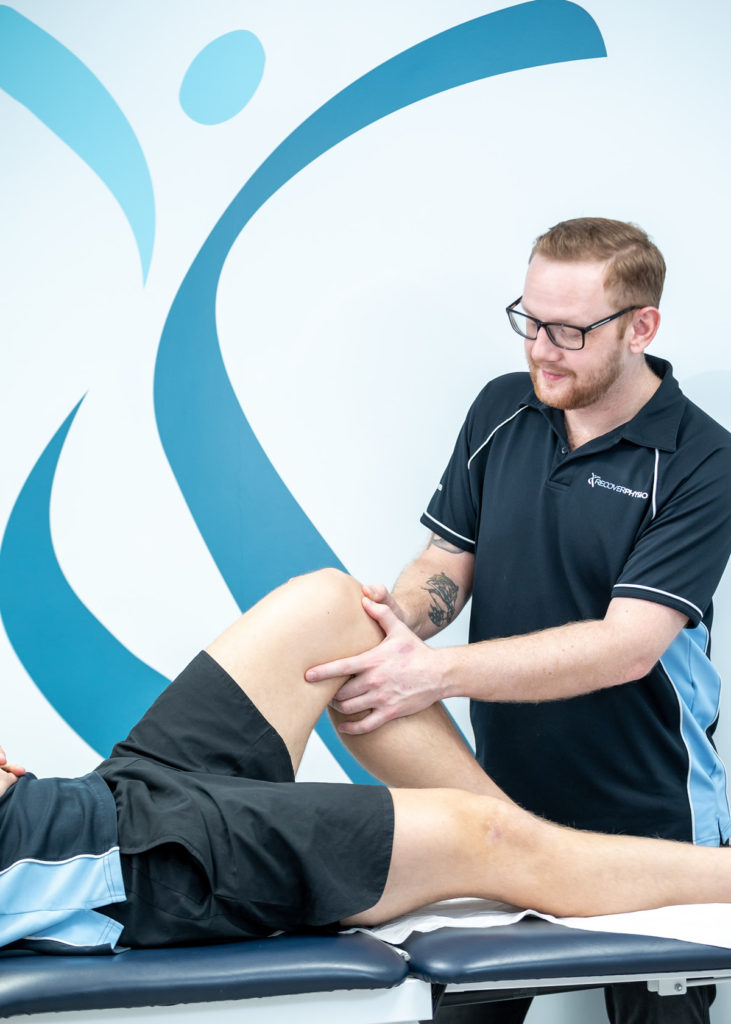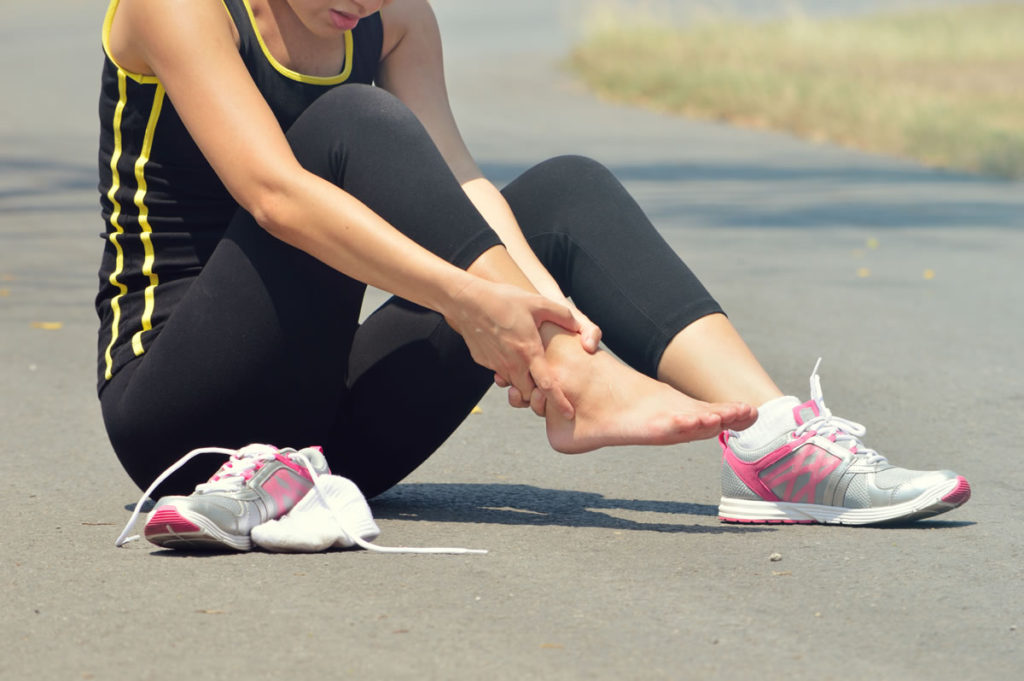Frustrating Sports Injury limiting your performance?
Sports injuries are common in all age-groups and the nature and severity of the injurywill depend on the type of sports activity in which you participate. Although injuries might be a part of the essential learning curve, the pain need not be.
Some injuries we commonly experience require you to refrain from movement while others need you to keep moving to prevent stiffness.
Professional help from our specialists at Recover Physiotherapy can help you to manage your pain and regain your confidence. We also offer complementary therapies for a more holistic approach.


What can cause a Sports Injury?
Sports injuries may occur during training, exercises or participating in a sports activity. Overtraining, lack of conditioning, inappropriate technique or an external factor/player regularly lead to sports injuries. Neglecting to warm up prior to exercising and fatigue increases the risk of injury. We also see more and more “weekend athletes” with injuries, those that are working in sedentary jobs throughout the week and then push themselves very hard at the weekend in their chosen sport/recreational activity.
The reason these injuries differ from those that occur during regular activities is that they often occur when the athlete puts the body under pressure either through regular repetition with a compromised posture e.g. running, swimming, swinging a club or racket with poor technique, or through a maximal contraction etc. sprinting/turning in a football match or lifting a heavy weight.
Common Sports Injuries
There are many different types of sports injury, so we have listed a few we regularly see:
Muscle Strains
Muscle strain or a pulled muscle is one of the most common sports injuries and often takes place when a muscle is overstretched and tears. Muscle strains mainly affect the hamstrings, calves, quadriceps, groin, lower back and shoulder. This form of injury can vary in severity and in recovery time and process. At Recover Physio, we provide experienced sports physiotherapists who can fast track your recovery and help prevent the injury recurring. This is now available from the comfort of your home – click “Online consultations” to find out more
Torn knee ligaments ACL and MCL
ACL or anterior cruciate ligament helps to keep the knee joints together and brings stability. A Torn ACL is extremely painful and restricts the ability to walk. The injury takes place from a direct shot to the knees, or from incorrect landing and/or stopping and changing direction quickly. A physiotherapist can diagnose this injury, which then requires surgery followed by physiotherapy rehabilitation sessions.
MCL is another form of knee injury, which occurs when the medial collateral ligament that connects the femur to the tibia is injured. It is caused when the knees are pushed sideways.
Shin Splits
This affects the insides of the lower leg or shin area and is an overuse injury and also a common injury amongst runners. Athletes having flat feet are more susceptible to this form of injury.
Stress Fracture
Stress fractures are also a form of overuse injury. These take place when the muscles are no longer able to absorb the pressure, thus resulting in a fracture. Stress fractures usually affect the lower legs and feet and women athletes are more prone to such injury than men.
Plantar Fasciitis
Plantar Fasciitis is the inflammation of the soft connective tissues that connect the heel to the front of the foot. Too much strain and stress are the usual reason for this form of injury.
Sprained Ankle
Ankle sprains take place when the ligament that supports the joint gets overstretched due to incorrect stepping or stepping on an uneven surface or due to twists and rolls.
Tennis Elbow
Tennis elbow is also an overuse injury that affects the tendons located on the outside of the elbows. Racket players, hockey players and cricketers are prone to this type of injury.
Achilles and patella tendinopathies
This is where the parts of the muscles that join to the bone (tendons) at the knee and ankle become inflamed. Often caused by overuse and restriction in the surrounding muscles.
Repetitive Strain Injuries
These range from shoulder difficulties from swimming or cricket throws, to knee, hip and ankle difficulties from running, kicking and jumping. If there is an underlying restriction, muscle imbalance or poor technique that is exposed to many repetitions, RSIs can be very common.
Lower Back Pain
Back pain either sudden or insidious is increasingly common in Sport, usually due to a compromised postural issue. For more information see our back pain section.
The above are just a few of the many sports injuries we see at Recover Physio. Using a Sports physiotherapist has been shown to speed up recovery of the athletes as well as aid the prevention of returning pain.
Recover Physio’s tips for preventing sports injuries
1
Always allow time to warm up, before heading for any sort of sports or heavy physical activity. For more advice on this please contact us below.
2
Undertake training under the watchful eyes of an experienced trainer to avoid over exertion and to learn the right techniques.
3
Take regular breaks to let your body rest and heal. Over training or over exertion will definitely lead to muscle strain and / or other injury.
4
Begin slowly, sudden high levels of activity put a lot of strain on the bones, muscles and joints, leading to injuries.
5
Learn to listen to your body. Back off at the first sight of discomfort or pain to avoid further aggravation of the injury.
6
Use the correct sports gear and equipment according to the needs of the sport. Many injuries are caused by the use of inappropriate equipment.
How can we help you and what would a Physiotherapy assessment for you involve?
It can take a number of weeks or months for you to recover completely. Recover Physio will diagnose your injury and then structure your recovery so that you recover as quickly as possible whilst preventing further damage.
At Recover Physio we gradually introduce various stretching and strengthening exercises so that you can optimise your reduction in pain.
A physiotherapy assessment is divided into two main parts – a subjective assessment and an objective assessment. A thorough assessment is imperative not only to provide your physiotherapist with all the information required to treat you effectively but also to provide you with a diagnosis and prognosis.
- The subjective assessment revolves around gaining information about you, your symptoms, the activities that caused or cause your pain and how these affect you day to day with work and leisure activities.
- The objective, or physical, assessment will typically look at your posture, range of movement, muscle strength, reflexes, sensation and palpation of soft tissues and the mechanics of the affected area. It is also common practice to assess your more global movements to ensure pain is not being referred from elsewhere.
After a comprehensive assessment your Physiotherapist will be able to diagnose the cause of your pain.


What would physiotherapy treatment for your Sports injury involve?
Physiotherapy for injury will involve a tailor-made treatment plan with the intention of reducing your pain in a way that takes into account your own personal circumstances and goals.
Treatment will begin immediately to promote a recovery as quickly as possible and may commonly include a combination of the following:
- Manipulation
- Joint mobilisation
- Stretching and strengthening exercises
- Acupuncture
- Posture education
- Advice on ergonomic alterations for your home or workplace
- Home exercise programmes
- Massage
- Pain management
Benefits of physiotherapy treatment for Sports injuries
There are many benefits of physiotherapy for sports injuries. Our overall aim is to enable you to return to your level of functioning prior to your injury as quickly and effectively as possible.
Benefits of physiotherapy:
- Elimination or reduction in pain
- Increased range of movement
- Reduced muscles spasm
- Ease of nerve root compression
- Increased function and daily activity


